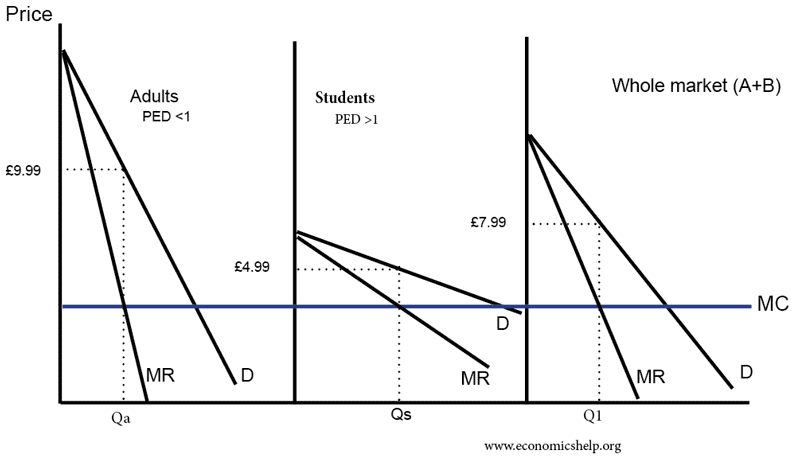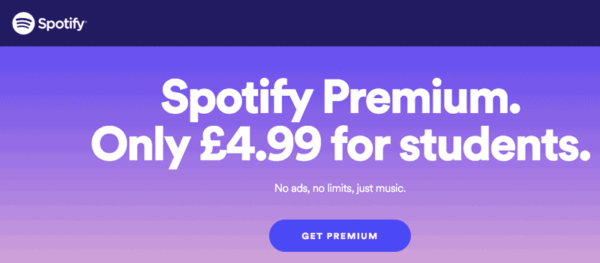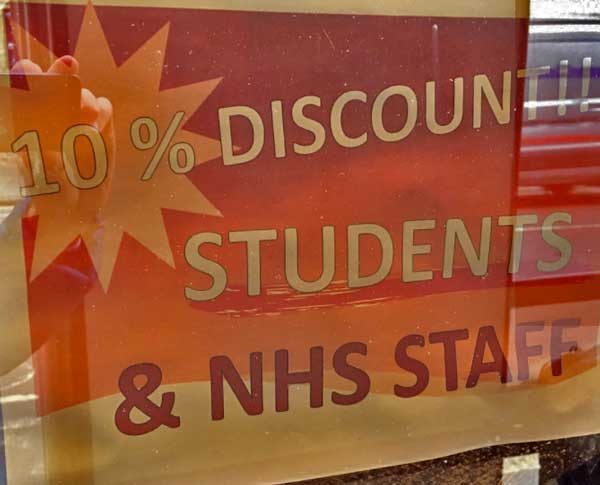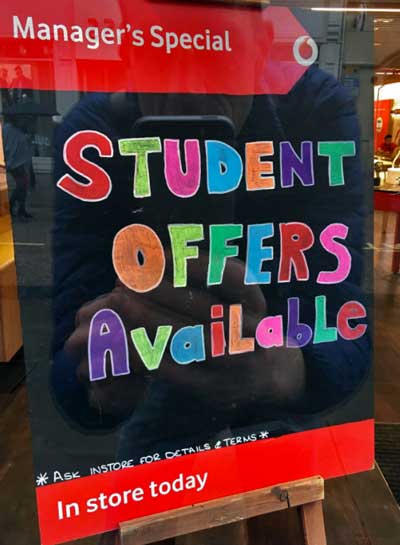Companies often offer student discounts – from 10% to 50% off. What is the logic behind this student discount – is it compassionate pricing for hard-up students or is there good economic logic to increase profits for firms?
Charging different prices to different groups of consumers is known as price discrimination. The idea is that if different segments of the market have different price elasticities of demand, then the profit maximising price will be different for the alternative groups.
Students typically will be more sensitive to prices. This is because they have lower disposable income and so a small increase in price can make a good unaffordable. Adults with full-time job are less price sensitive because they have higher income.
This diagram below shows two groups – adults and students. Adult demand is price inelastic, student demand is price elastic.
For a firm to maximise profits, they will set a price where marginal revenue = marginal cost. (Profit maximisation)
For adults, the profit maximising price is £9.99. But, at that price, demand from students would be very low. If you reduce the price to £4.99 for students you are able to sell more to students, but still keep selling at a high price to the non-students.
In this way, the firm gets the best of both world – high price to adults, and increased sales to students. This way it can make more profits by offering different prices to the different groups of consumers.
(WIthout price discrimination, the firm may charge an average price of £7.99)
Conditions necessary for price discrimination
- A firm must be able to separate the markets. Firms can segment students by age or student cards.
- The different markets must have different elasticities of demand.
- The costs of separating markets must be low.
- The firm must be able to prevent resale, e.g. students buying goods for adults.
See more on price discrimination
Example of student discount
I saw this ad in my twitter feed. Spotify was offering a 50% discount for students on their premium. Usual price £9.99
50% is a big discount but there may be good reasons for Spotify to offer a large discount to students.
- Student demand is more price elastic due to lower income.
- The student generation is less amenable to the idea of ‘paying for music’. Many students are more used to a culture of getting music for free. A cheap offer makes it more attractive to make a regular payment and get into the habit of paying for music. Spotify will hope that many who join service as students will become loyal life-time members and when the price goes up to a regular £9.99 in three years time they will have strong brand loyalty and keep paying.
- On a similar theme, many banks offer special student bank accounts. These accounts may not be particularly profitable for banks, but they will hope that a student who signs up will stay for life. Therefore, students are seen as an investment for the future.
Why not discounts for other low-income groups like the unemployed?
- In theory, a firm could offer discounts to groups of people who can prove they are unemployed or claiming benefits. Their income is likely to be lower than students and even more price elastic.
- However, this starts to bring in non-economic factors. The unemployed/benefit recipient will not like the stigma of getting out an unemployment letter to get 10% off a restaurant meal.
- Also, other customers may slightly resent if they felt they were subsidising ‘benefit recipients.’
- Sometimes in the past football clubs, with high local rates of unemployment, have given discounts to the unemployed.
Discounts for NHS staff
I saw this sign in a local restaurant. 10% discount for students and NHS staff. The firm is segmenting customers on a new form of market segment – those who have an NHS card.
NHS workers are likely to be slightly more price sensitive than an average worker, though doctors are paid above the national average.
I guess the popularity of discounts for NHS staff is that it is seen as a job with high social benefit. Other customers probably wouldn’t mind – though other public sector workers, such as policemen or firemen may feel slightly aggrieved. This is something the restaurant maybe didn’t consider.
[Recently I bought a new phone from Vodafone. The first day I went in, I didn’t buy. The next day, I was about to buy when the salesman asked if a family member worked in the NHS? I said ‘yes, I have a sister who is a nurse’. As a result, I got a 15% discount on a 24 month phone contract. It was worth over £120! I felt slightly embarrassed as my sister probably deserved the discount much more than me! The thing is the first salesman didn’t mention the NHS discount. I only just got it.]
This is typical of the many student discount offers available in Oxford at the moment.
Related




